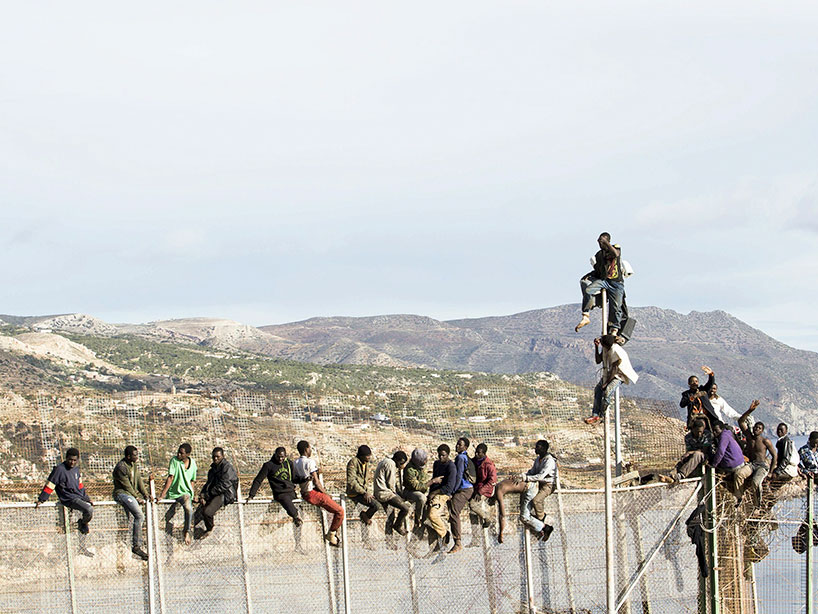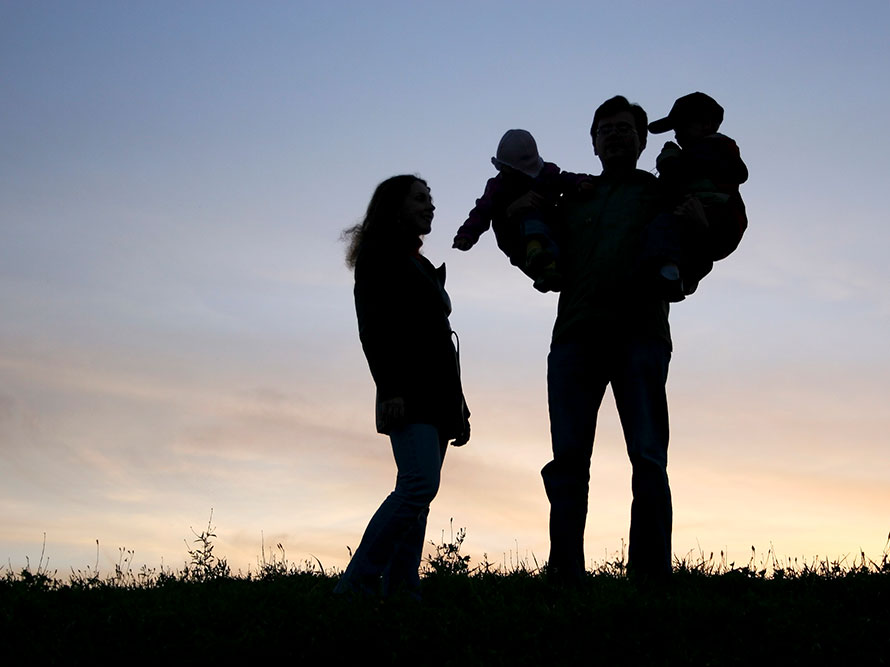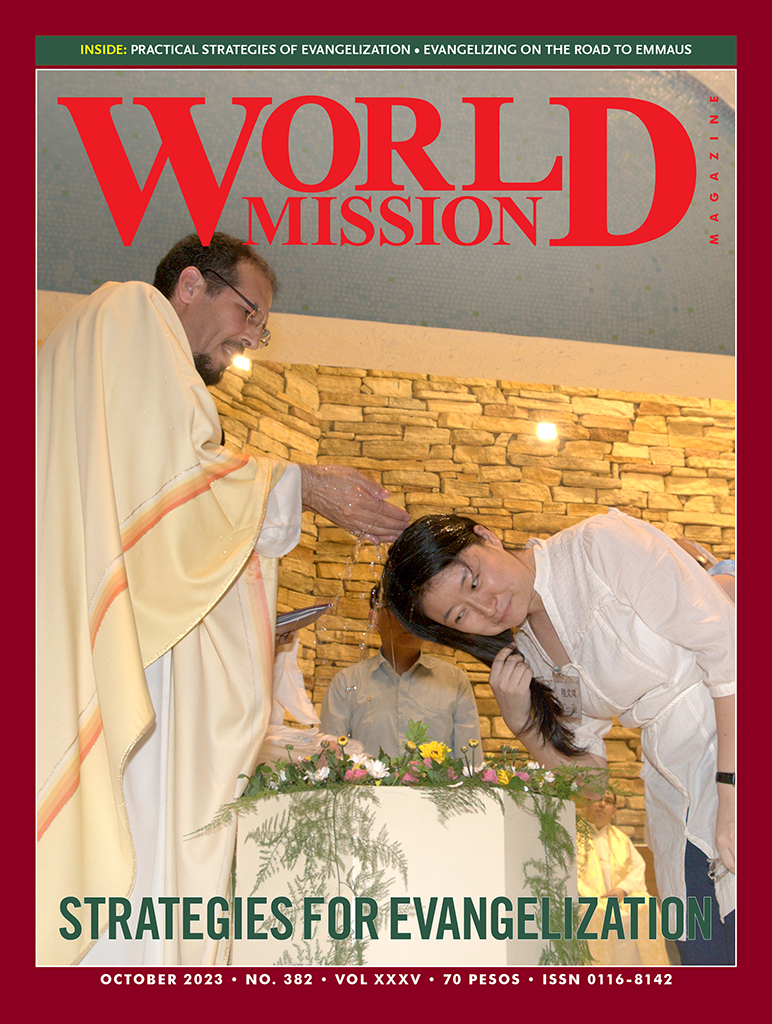

Jesus Is Missing!
The high consumerist mentality attached to Christmas can hinder us from truly living the Season. “The Word became flesh and dwelt among us” (Jn 1:14). This is Christmas!
Browse past isues
Help the mission
Support the mission
Get in touch


December 2014


The high consumerist mentality attached to Christmas can hinder us from truly living the Season. “The Word became flesh and dwelt among us” (Jn 1:14). This is Christmas!


The Extraordinary Synod of Bishops on the Family, which concluded last October, seemed lackluster and uneventful, at least from the point of view of secular media and generally disinterested observers. For one, no concrete solutions and strong positions were made on the issues that were debated on the floor. For example, a decision on whether divorced Catholics who remarried will be allowed to take Holy Communion, one of the hotly-contested issues in the Synod’s working document, was not made.


The U.N. Food and Agriculture Organization (FAO) estimates that 1.3 billion tons of food go to waste globally every year. Meanwhile, 805 million of the world’s people are still experiencing chronic undernourishment or hunger, Ren Wang, Assistant Director General of FAO’s Agriculture and Consumer Protection Department, told the 11th International Media Forum on the Protection of Nature.


The International Energy Agency (IEA) has recently called for “clear, credible and consistent signals from policy makers” to help lower deployment risks to investors and inspire confidence in harnessing solar energy as it clearly holds potential to overtake oil and gas as the main source of power generation by 2050. “The sun could be the world’s largest source of electricity by 2050, ahead of fossil fuels, wind, hydro and nuclear,” according to two reports issued by IEA, the Paris-based world’s top energy think tank.


Migrants trying to reach more prosperous countries have died at a rate of 8 every day for the past 14 years, the majority of them trying to get to Europe, according to the most comprehensive ever tally of migrant deaths.


In the hinterland village of Pedtad in North Cotabato province, Philippines, a group of former Islamist fighters have put aside their guns in exchange for a more peaceful life managing fishponds. “Tending the farm and pulling out water lilies is safer than carrying guns and roaming the mountains,” said Harun Imba. “In the mountains, your life is always in danger.”


The world’s wildlife populations, including mammals, birds, reptiles, amphibians and fish, have dropped by more than half in the last 40 years, the World Wildlife Fund’s (WWF) said in its latest report. “Put another way, in less than two human generations, population sizes of vertebrate species have dropped by half,” Director General of WWF International Marco Lambertini said in a statement.


Most of the world’s governments are taking measures to reduce the worst and most hazardous forms of child labor, according to a major report recently released by the U.S. Labor Department.


In a truly mature family where children are given affirmation, understanding, trust, encouragement and inspiration, children grow up fulfilled and satisfied children. They will attain a sense of freedom and will be constantly challenged to stand on their own feet, find freedom through education and community involvement, and mature friendships. They will be self-reliant and independent. They will not be the rebellious, prodigal children and will not see their parents as mere sources of money for personal gratification and selfish ambition.


Children are often passed off and disregarded in society because of their immaturity and inexperience. However, many people of goodwill continue to place their hope in children and see them as the promise of the future. Regardless of their race or religion, these people see goodness in children, and, therefore, see God, the Child Jesus, in them. In turn, people who work tirelessly for the rights and welfare of children, like this year’s Nobel Peace Prize winners, Malala Yousafzai from Pakistan and Kailash Satyarthi from India, become earthly images of God themselves.


Throughout history, the Transcendental Force, the Supreme Being or the Divine, has been given different names, forms and images, depending on the circumstances, culture, and prevailing situation of a community, race, or people. Many of these images of God are distorted, if one were to go back to the pre-historic concept of the “spirit living in the heavens.” But all these images of God were shattered with the coming of Jesus Christ, the God of Love, “God with us.”


The congested, foul-smelling, and disease-ridden slum communities all over the world are usually associated with violent urban poor communities. Some say it will be difficult to see Jesus there because of all the filth and transgressions. There is no doubt that squalor and criminality are pervasive, but Jesus is surely present, too. How could He not be, when the Church teaches that God is with the poor in a special preferential manner?


Mapuordit Hospital has been a life-saving institution through the generous dedication of missionaries and lay people prepared to serve, to heal and to rekindle hope in the distressed hearts of many South Sudanese people. Bro. Rosario, a Comboni Missionary Brother, is the key not only in running the Hospital but also in creating human resources to meet the basic medical needs of a people still striving to build their lives after the cruel war.


There is no doubt that music is effective in communicating a message, evoking an emotion, or simply eliciting a response from a listener. That is why Church music is tailored in such a way that it encourages worship. Nowadays, however, there is an ongoing debate between traditional and contemporary liturgical composers and musicians over which kind of music can be considered appropriate in the liturgy. Without losing sight of the Church documents written specifically for this purpose, the Christian contemporary composer must now strike a balance between music which is acceptable and which can attract and sustain not only interest among mass-goers especially in this internet age, but also nurture and increase their faith.


At one point in Luke’s Gospel, Jesus referred to certain characteristics of a child that should be emulated by those who aspired to enter the kingdom or reign of God. To become the “model citizens” of this kingdom, Jesus, however, did not exactly mean that His followers should be docile, meek and innocent, just as children are. In fact, Jesus was referring to the traits of a child who, devoid of any possessions or title, becomes accepting, obedient, and dependent to what is given to him/her – most especially the gift of the Kingdom of God.


Each Christmas is an opportunity to visit or marvel at the holy places where Jesus was born, including the Bethlehem Basilica, where the Midnight Mass is celebrated. This has been done by Christians since the beginning of the Church. One such individual who had the privilege was Lady Egeria, a noble woman from Galicia, Spain, who made a pilgrimage to the Holy Land
from 381–384 A.D. She wrote a report of her journey in a long letter to a group of women at home. The letter survives in a later copy. Her firsthand account is a charming reflection and testimony of a Christian woman about the lengthy pilgrimage and, given its antiquity, a work of major significance for the fields of archaeology, Church history and comparative liturgy.


“I have many people in this city” – Read Acts 18:1-18


October 2023 Issue
The latest issue is reserved for paying Subscribers only.
